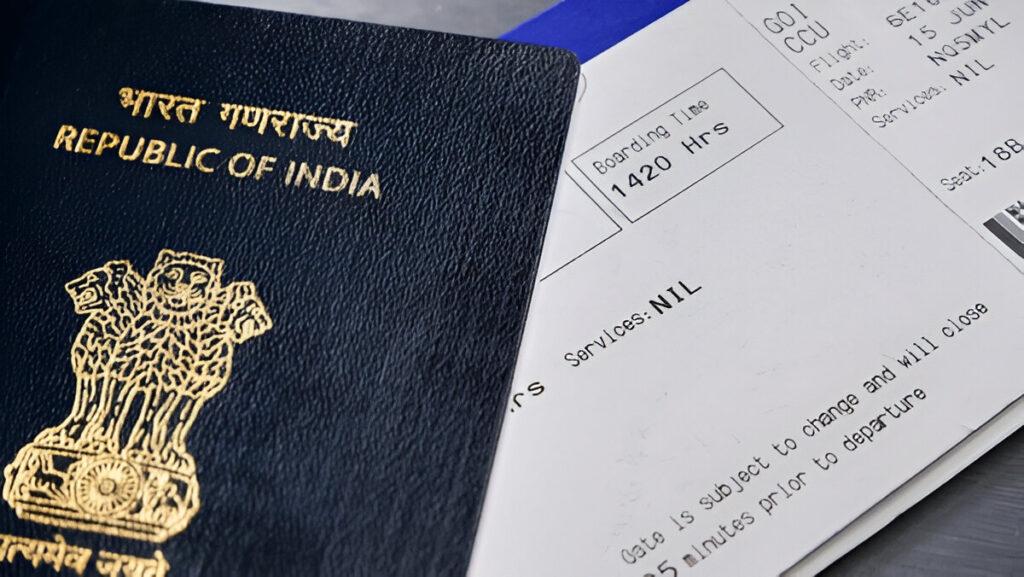Do You Need to Surrender Your Indian Passport? A Complete Beginner’s Guide

If you’ve recently become a citizen of another country, you may feel proud, relieved, and ready to start your next chapter. But there’s an important step many new citizens overlook—surrendering your Indian passport.
This guide is designed for beginners who are navigating this process for the first time. We’ll answer the why, when, where, and how of surrendering your Indian passport in USA, and share tips to make the process easier.
Why Do You Have to Surrender Your Indian Passport?
India does not recognize dual citizenship. Once you take the oath of allegiance in another country, your Indian passport automatically loses its validity.
Here’s why surrendering is necessary:
-
It’s the law – Keeping and using an Indian passport after foreign naturalization is illegal.
-
To avoid penalties – Fines can range from $250 to over $1,000 if you fail to surrender or use your Indian passport after acquiring foreign citizenship.
-
For future applications – You need a Surrender Certificate to apply for an OCI card, Indian visa, or other consular services.
When Should You Surrender Your Passport?
Ideally, you should apply for passport surrender immediately after becoming a foreign citizen. The sooner you act, the smoother the process.
-
Best time: Right after you receive your foreign passport or naturalization certificate.
-
Delaying the process: Could lead to fines or issues later when applying for an OCI card.
Where Do You Apply to Surrender Your Passport?
Your place of residence decides where to apply:
-
In the USA – Through the Indian Embassy or nearest Consulate (often managed by VFS Global).
-
In the UK, Canada, Australia, and elsewhere – Via the Indian High Commission or outsourced service providers.
-
In India – Directly through the Regional Passport Office (RPO).
Step-by-Step Process for Surrendering Indian Passport
Step 1: Complete the Online Form
Visit your consulate’s official website or partner site and fill out the “Renunciation/Surrender” application.
Step 2: Gather Required Documents
You’ll typically need:
-
Original Indian passport
-
Foreign passport copy
-
Naturalization certificate (proof of new citizenship)
-
Proof of address
-
Passport-size photos
Step 3: Pay the Fees
-
Standard fee ranges from $100–$200, plus service charges.
-
Extra penalties apply if you used the Indian passport after foreign citizenship.
Step 4: Submit Your Application
-
Via mail with a trackable courier service
-
Or in person, if the consulate allows it
Step 5: Receive Your Surrender Certificate
The consulate will issue a Surrender Certificate confirming that your Indian passport is officially cancelled. This document is essential for applying for an OCI card or long-term visa.
How Much Time Does It Take?
Processing times vary by consulate and application volume. On average:
-
2–6 weeks in most countries
-
Faster in some locations if you submit in person
📌 Pro Tip: Always apply well in advance if you plan to travel to India.
Common Questions About Passport Surrender
Q1: Can I travel to India while the surrender process is pending?
No, you must travel using your foreign passport and a valid Indian visa or OCI card.
Q2: Will I get my old passport back?
Yes, in many cases the consulate cancels it and returns it to you, stamped “Cancelled.”
Q3: Is surrender required for children too?
Yes, minors who held Indian passports must also surrender them after naturalization.
Q4: What happens if I don’t surrender?
You may face fines, difficulties applying for an OCI, or even rejection of consular services.
Final Thoughts
Surrendering your Indian passport may feel like an extra task during your citizenship transition, but it’s one of the most important steps. It keeps you legally compliant, prevents future complications, and ensures that you can smoothly apply for an Indian visa or OCI card.
If you’ve recently become a foreign citizen, don’t delay—start the passport surrender process today and secure your future travel to India.
- Art
- Causes
- Crafts
- Dance
- Drinks
- Film
- Fitness
- Food
- Games
- Gardening
- Health
- Home
- Literature
- Music
- Networking
- Other
- Party
- Religion
- Shopping
- Sports
- Theater
- Wellness


